Apple patent will block your iPhone at concerts
Seas of smartphones recording live performances could soon become a thing of the past
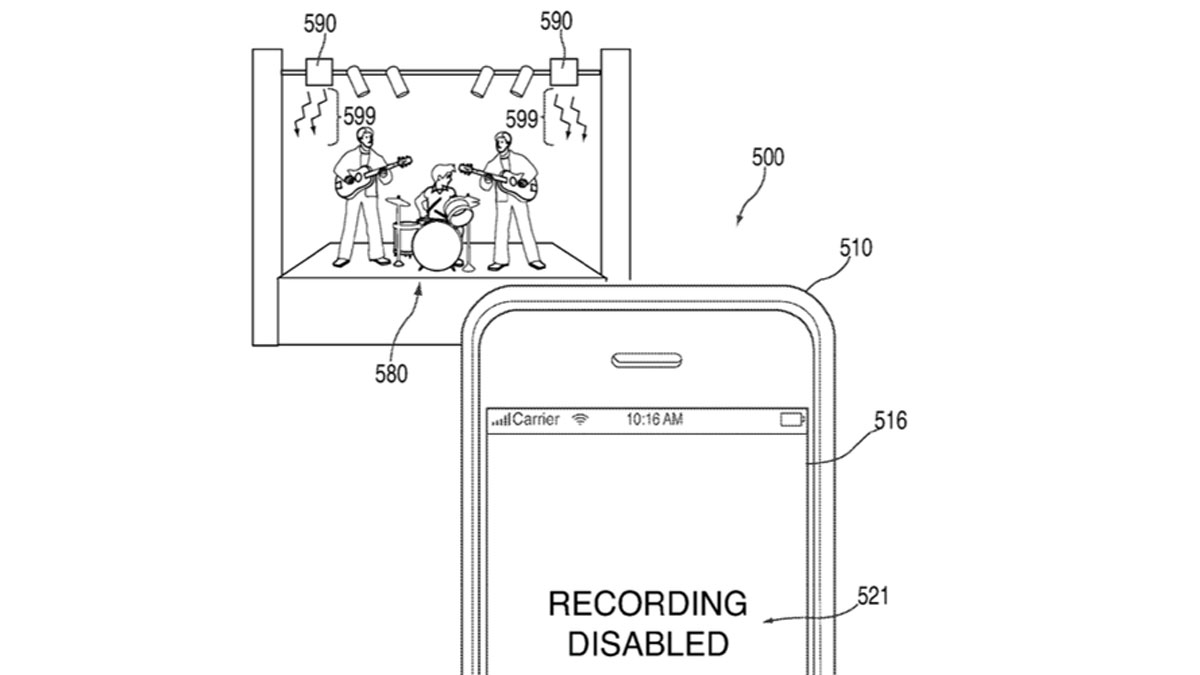
A free daily email with the biggest news stories of the day – and the best features from TheWeek.com
You are now subscribed
Your newsletter sign-up was successful
A newly-granted Apple patent could have big implications for concert-goers keen to record live acts on their phones.
Filed by Apple in 2011 and granted this week, the document - snappily-titled "Systems and methods for receiving infrared data with a camera designed to detect images based on visible light" - sets out a system for remotely disabling iPhone cameras, using a live concert as a prime example of where it could work.
It uses as infrafred beam placed on stage to block any iPhone pointed towards the performers. Users would merely get a "recording disabled" message.
The Week
Escape your echo chamber. Get the facts behind the news, plus analysis from multiple perspectives.

Sign up for The Week's Free Newsletters
From our morning news briefing to a weekly Good News Newsletter, get the best of The Week delivered directly to your inbox.
From our morning news briefing to a weekly Good News Newsletter, get the best of The Week delivered directly to your inbox.
The technology could be used almost anywhere, including cinemas, theatres and locations where photography is banned.
Fans recording live performances on smartphones is becoming a nuisance for both concert-goers and performers alike, reports The Guardian. Alicia Keys and Guns n' Roses are among several artists who require audiences to put their mobile devices into lockable pouches that can only be opened when they move out of a designated phone-free zone.
However, Apple's tech wouldn't completely lock fans out, reports the Daily Mail. The phones would not be disabled when pointing away from the infrared sensor so users would still be able to take selfies or photos of their friends. Alternatively, videos could get automatic watermarks, encouraging fans who do record to keep the footage to themselves.
9to5Mac picks up another aspect of the patent – a much more positive application.
A free daily email with the biggest news stories of the day – and the best features from TheWeek.com
It says the sensor could be positioned at a museum exhibit, for example, and pointing a camera at it could automatically throw up extra information about the piece.
The site also adds that the infrared aspect is now slightly outdated and that more modern forms of transmission, such as iBeacons, would make more sense.
-
 The ‘ravenous’ demand for Cornish minerals
The ‘ravenous’ demand for Cornish mineralsUnder the Radar Growing need for critical minerals to power tech has intensified ‘appetite’ for lithium, which could be a ‘huge boon’ for local economy
-
 Why are election experts taking Trump’s midterm threats seriously?
Why are election experts taking Trump’s midterm threats seriously?IN THE SPOTLIGHT As the president muses about polling place deployments and a centralized electoral system aimed at one-party control, lawmakers are taking this administration at its word
-
 ‘Restaurateurs have become millionaires’
‘Restaurateurs have become millionaires’Instant Opinion Opinion, comment and editorials of the day
-
 Will AI kill the smartphone?
Will AI kill the smartphone?In The Spotlight OpenAI and Meta want to unseat the ‘Lennon and McCartney’ of the gadget era
-
 Is Apple’s Tim Cook about to retire?
Is Apple’s Tim Cook about to retire?Today's Big Question A departure could come early next year
-
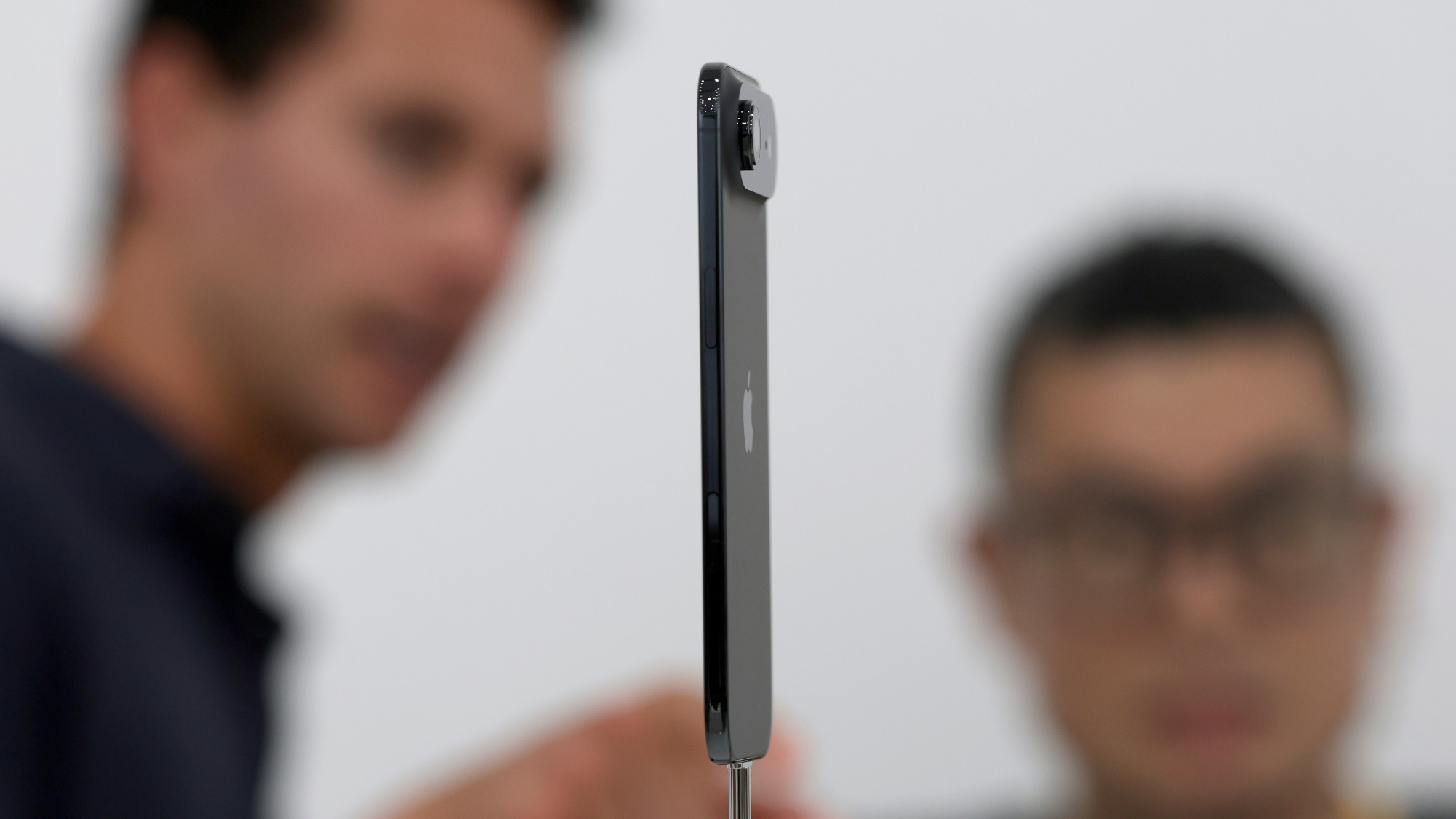 iPhone Air: Thinness comes at a high price
iPhone Air: Thinness comes at a high priceFeature Apple’s new iPhone is its thinnest yet but is it worth the higher price and weaker battery life?
-
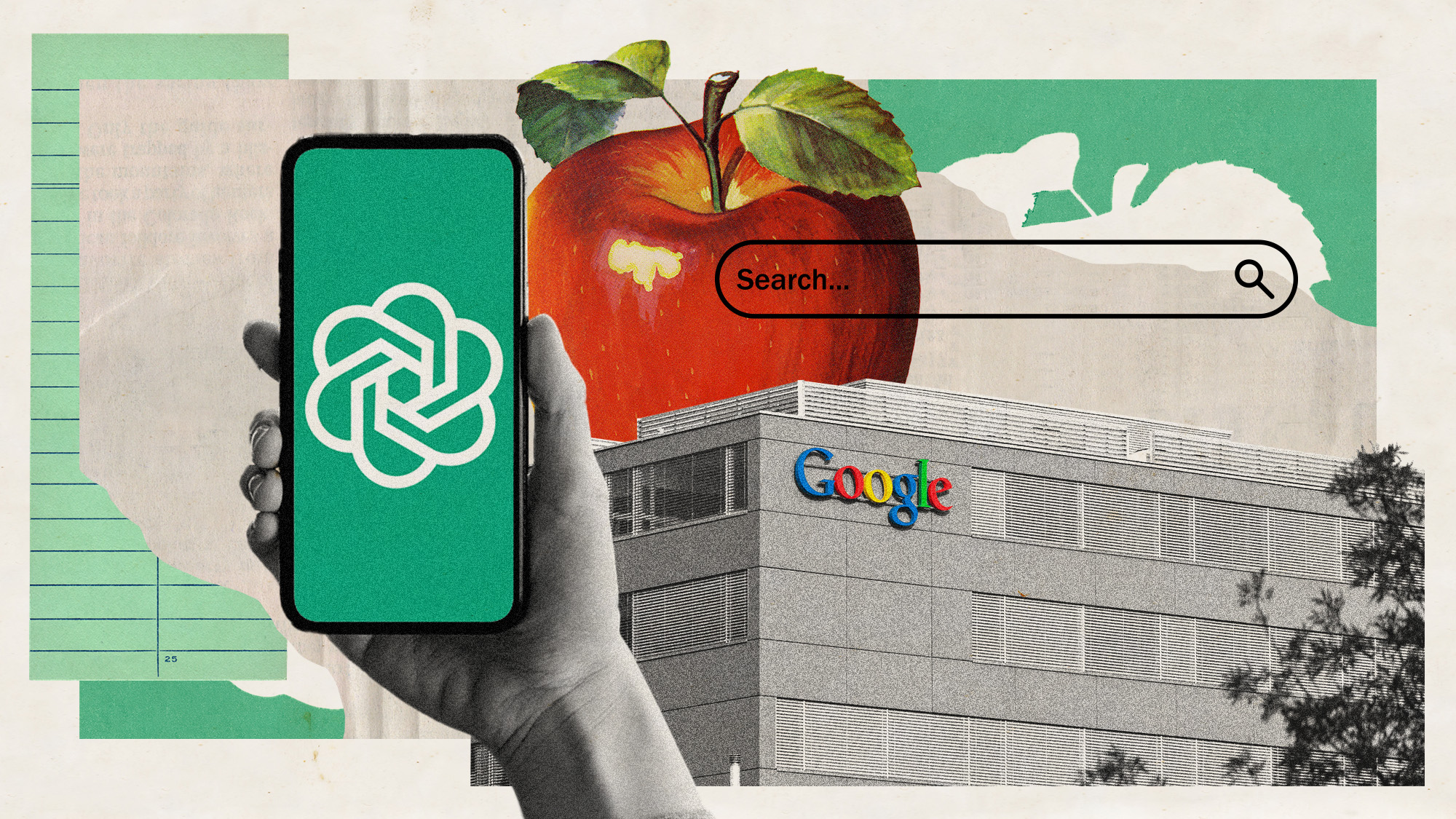 Is Apple breaking up with Google?
Is Apple breaking up with Google?Today's Big Question Google is the default search engine in the Safari browser. The emergence of artificial intelligence could change that.
-
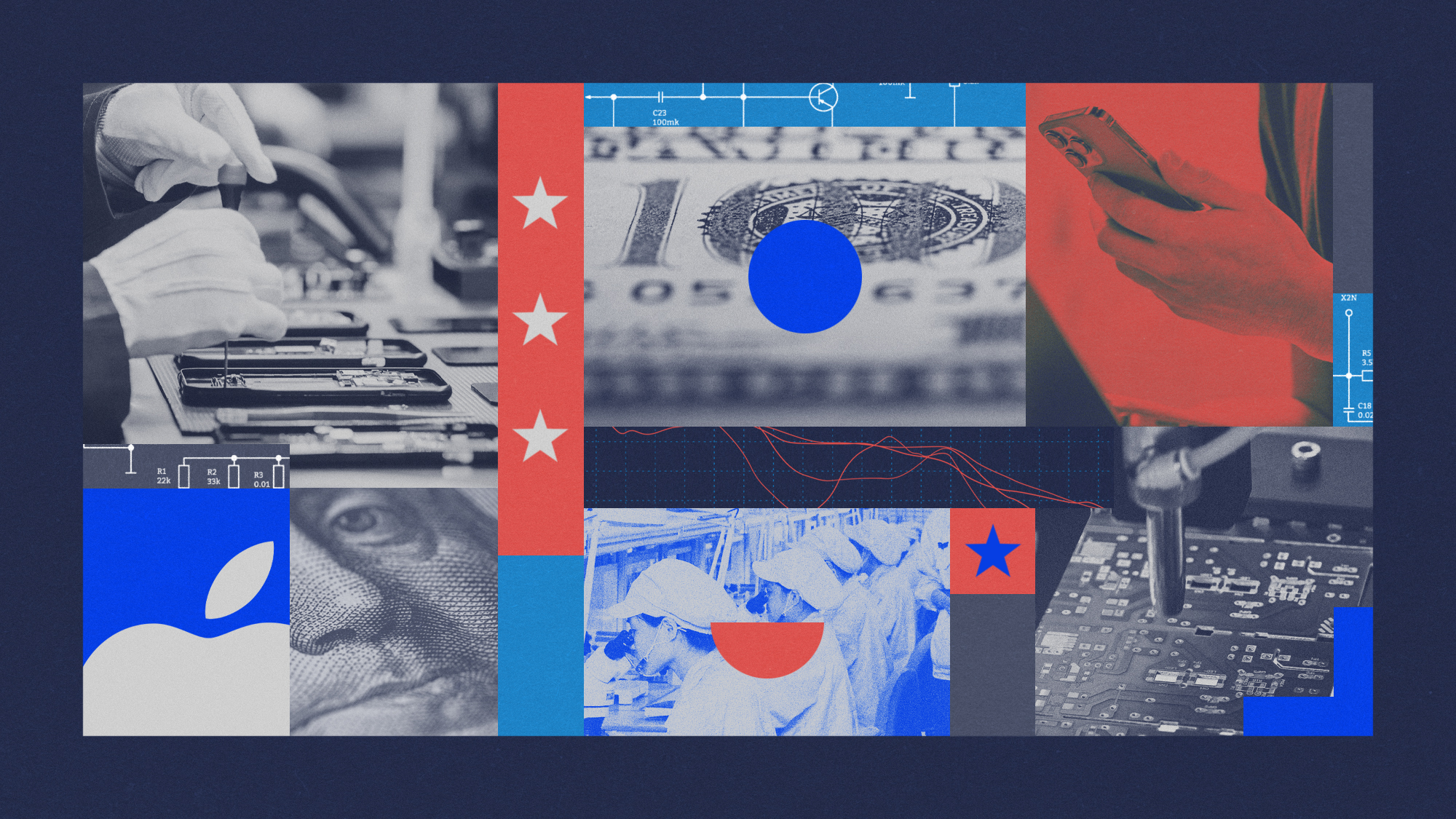 Why won't Apple make iPhones in America?
Why won't Apple make iPhones in America?Today's Big Question Trump offers a reprieve on tariffs, for now
-
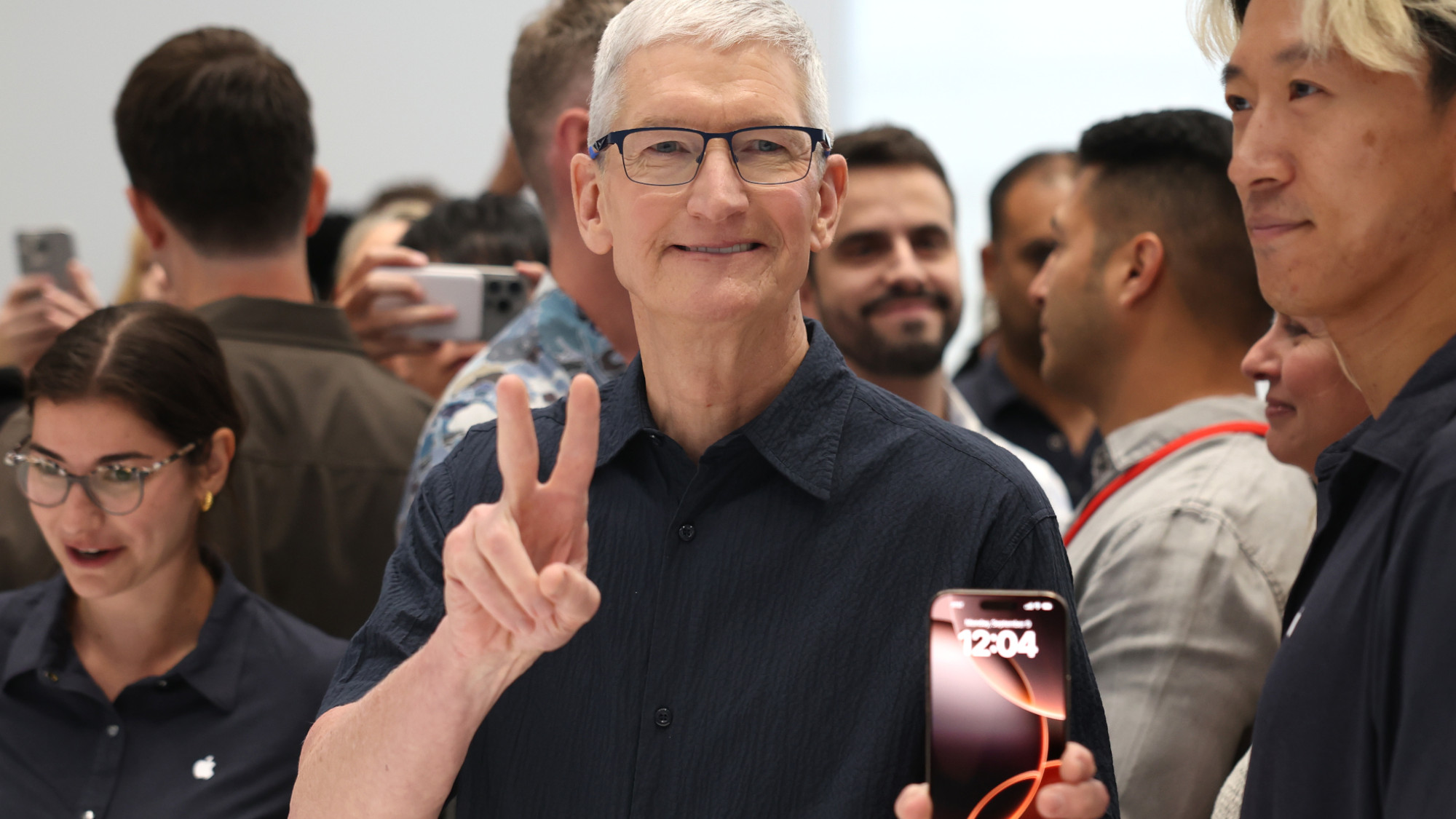 Not there yet: The frustrations of the pocket AI
Not there yet: The frustrations of the pocket AIFeature Apple rushes to roll out its ‘Apple Intelligence’ features but fails to deliver on promises
-
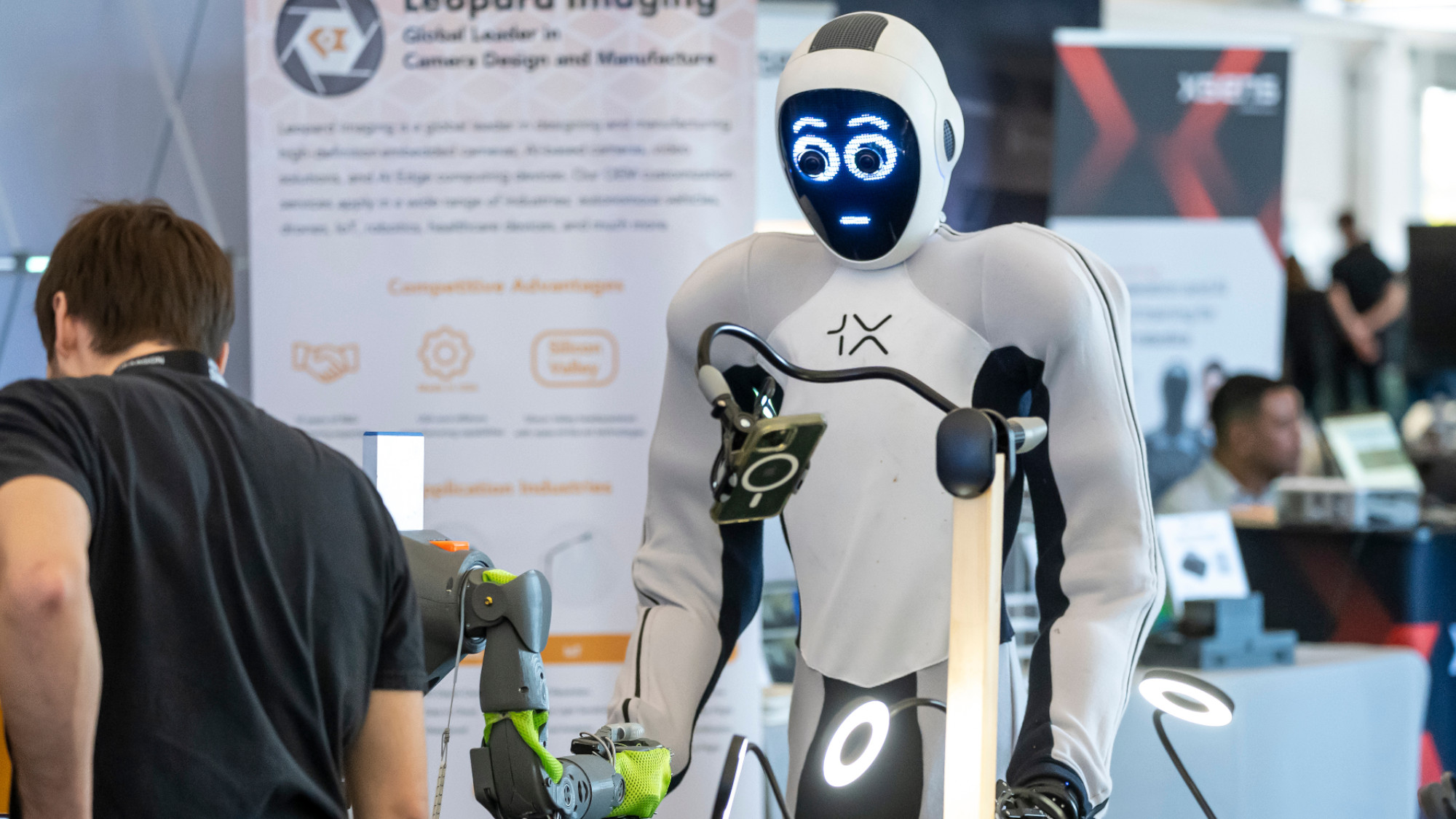 Space-age living: The race for robot servants
Space-age living: The race for robot servantsFeature Meta and Apple compete to bring humanoid robots to market
-
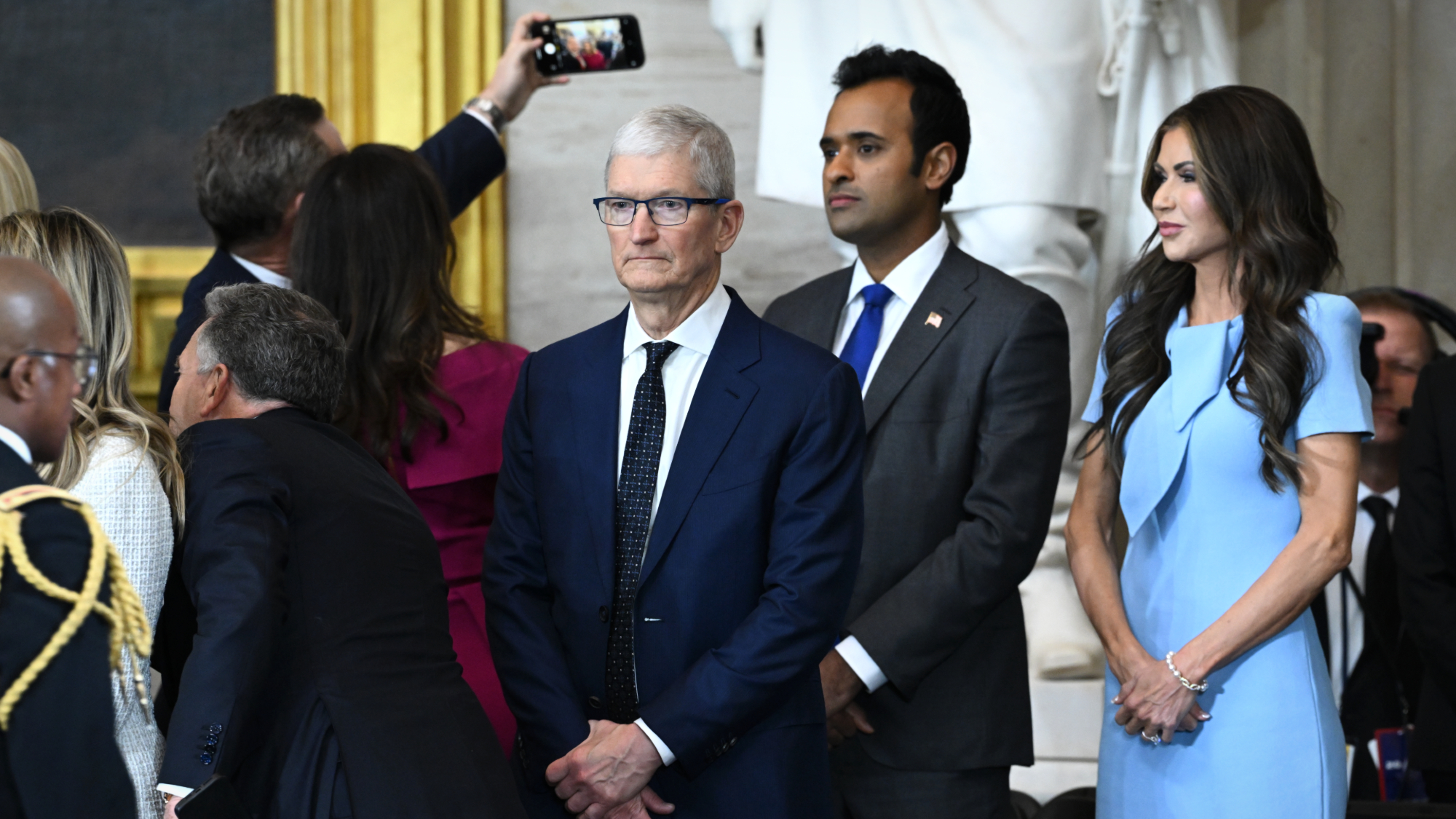 Apple pledges $500B in US spending over 4 years
Apple pledges $500B in US spending over 4 yearsSpeed Read This is a win for Trump, who has pushed to move manufacturing back to the US